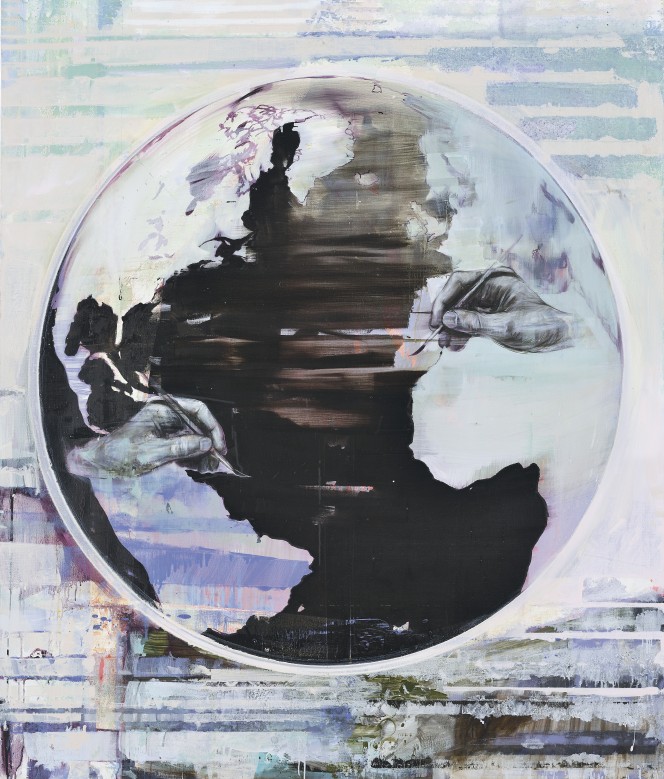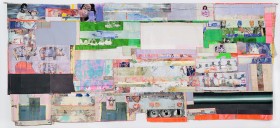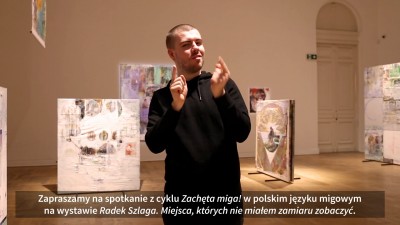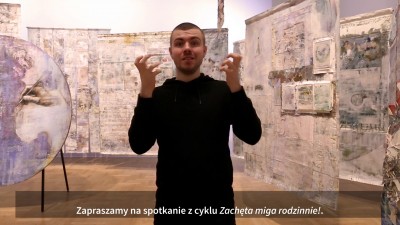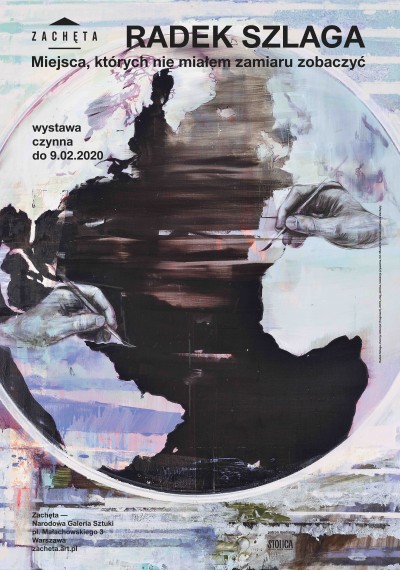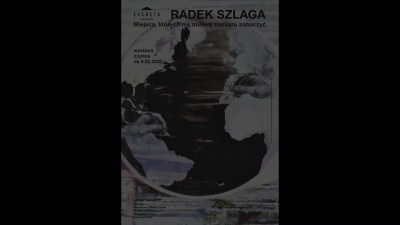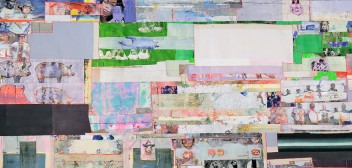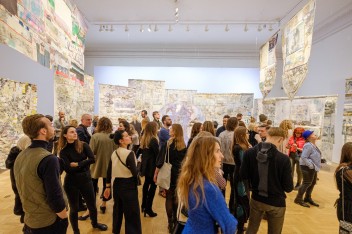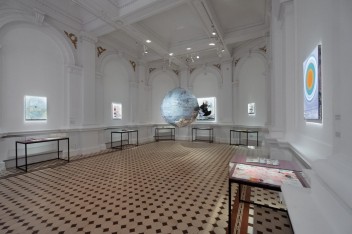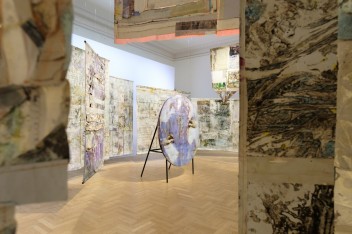Radek Szlaga Places I had no intention of seeing
07.12.2019 – 09.02.2020 Radek Szlaga Places I had no intention of seeing
Zachęta – National Gallery of Art
curator: Ewa Borysiewicz
cooperation: Julia Leopold, Michał Kubiak
The exhibition presents the latest paintings by Radek Szlaga, which were created as a result of his study of the language of the painting medium, underestimated narratives and relations between art, information and knowledge. Today, these interests gain new meaning and context.
Szlaga has often been called a postmodernist by critics. Postmodernism — as a lack of faith in the existence of a neutral evaluation of facts, phenomena and attitudes — is often considered to be one of the sources of a post-truth, cynical attitude towards facts. This is related to access to a huge amount of information (sometimes conflicting) and the erosion of authority of experts and scientific research. These days, the effectiveness of a message is not dependent on its verifiability, but on the number of ‘emotional’ reactions that translate into views, shares and likes. As a result, information sources are equalised in terms of their seriousness and reliability. In the artist’s latest works, travellers’ boasts, drunken stories and news offered by the so-called mainstream media gain similar import and cognitive value.
The disturbance of the hierarchy of sources is very clear on the level of both the painting method and the technique. When ‘building’ new canvasses, Szlaga uses older works as source material. Images that differ temporally, thematically or formally become a new, multi-layered whole. In this way, the artist not only discusses an individual’s contemporary approach to information, but also ‘sums up’ his own work, gives it a new meaning and examines it from a distance. The exhibition can be seen as a kind of retrospective — the elements bound together to make up the individual works show the entire spectrum of the themes he has been working with so far. Long-term artistic analyses of such subjects as identity, painting and the relationship between the centre and the periphery meet here on a single plane.
Szlaga pays particular attention to the map and its variants, such as the globe or the atlas. This is a symbol of a culture dominated by visuality, in which ‘I see’ means both ‘I know’ and ‘I possess’. Once an object equipped with a specific, complete and undisputed point of view, today — in the times of Google Maps — it has become a system open to subjective use. Traditional, static, printed maps — oriented according to geographical directions — show a bird's eye view of the area in question. In the case of Google Maps, the ‘centre’ is moveable and depends on the location of the person using the application. Thus, the map and its deconstruction (exposing the marginals, emphasising the seams, giving meaning to the reverse) serves as a metaphor for the disintegration of universalism and the concept of objective knowledge based on facts. It becomes a starting point to examining a reality whose basic and defining feature is fragmentation, which in the context of the exhibition means both appreciation of the individual voice and alienation, loneliness and loss in the multiplicity mediated by the screens.
The arrangement of the exhibition illustrates the changes in our attitude towards knowledge — the way from the belief in the existence of objective formulas of systematisation, the usefulness of sharply outlined divisions and definitions, to the situation in which emotions are a compass and the main source of orientation in the world. The contemporary, emotional and subjective relationship between the individual and knowledge is described by such notions as the ‘information bubble’ (being cutting off from information potentially interfering with a user's beliefs) and ‘confirmation bias’ (tendency to select and assign more importance to information consistent with the expectations of the recipient and confirming his hypotheses). While working on the exhibition, it was important for Szlaga to notice that today’s (emotional and subjective) approach to knowledge is closer to the way we have always looked at art.
The exhibition is complemented by a dictionary of terms important to the artist (Words I Had No Intention of Knowing) published in the Zachęta, October, November and December 2019 magazine.
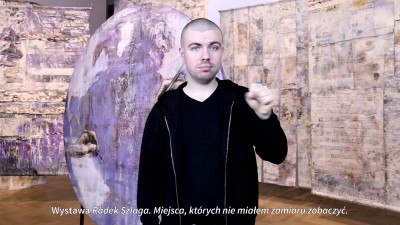
Radek Szlaga
Places I had no intention of seeing
07.12.2019 – 09.02.2020
Zachęta – National Gallery of Art
pl. Małachowskiego 3, 00-916 Warsaw
See on the map
Godziny otwarcia:
Tuesday – Sunday 12–8 p.m.
Thursday – free entry
ticket office is open until 7.30 p.m.
Thank you for your registration!
We have sent to your email address a link with a confirmation of registration.
Please click on the link in order to fully activate your account.
After registering on the service, you can add events and exhibitions that are important for you to your favourites. To your list of favourites you can also add objects from the collection, and from amongst the publications and multimedia library which we make available on our open Creative Commons licence. As a result you can download publications, books, films and many other materials.
Shortly you will be redirected to main page
